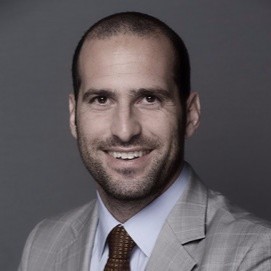Does the Investment Migration Industry Need a Regulatory Body?
On a sunny day in Lisbon, I was meeting with my colleague and friend Anatoliy Lyetayev, well known to IMI readers, as we do from time to time to reflect on our industry. One of our conversation topics was what the future of the industry would be without a regulatory body to govern it and we thought it was worth writing an article to share our opinion with our fellow professionals, to see who it resonates with.
We see a lot of similarities between investment migration (IM) and the financial industry and, as such, we believe IM could benefit from the establishment of similar governing bodies. Financial intermediaries are governed by a self-regulatory body, instigated by the industry itself. Such self-governing and setting of (enforceable) standards lend a great deal more credibility and legitimacy to financial services professionals than they might otherwise command. Anyone dealing with them will know they have the proper level of knowledge, the proper insurances, the proper risk-adjusted capital levels, and so on.
Where to begin
Casting our thoughts back to our own industry, we’ve already seen embryonic initiatives in this direction thanks to the Investment Migration Council (IMC), which has managed to unite IM professionals and stakeholders in an association, with what we consider an appropriate focus: Education and information.
At this juncture, we must raise two questions:
- What types of authority and requirements would an IM-industry governing body have?
- Which organization could take the lead on this initiative?
We don’t pretend to know the answers; we merely seek to get the discussion started and plant idea-seeds in the heads of IMI’s readers by attempting to answer those questions in our own way.
Potential templates
When considering what such a regulator might look like, one place to start is to look at what exists already. Though there is no global governing body for investment migration practitioners, there are many at the national level.
Take Canada, for instance. There’s The Canadian Association of Professional Immigration Consultants (CAPIC) and The Immigration Consultants of Canada Regulatory Council (ICCRC), just to name the two largest at the federal level. Both associations played an important role in coordinating the Canadian immigration industry’s government relations and advocacy. The ICCRC actually went on to become a regulator in Canada.
As with similar organs for financial intermediaries, the role of the regulator here is to certify its members’ abilities to appropriately serve clients, vouching for the practitioners’ adequate knowledge and credentials so that one may feel safe in engaging their services.
The focus, therefore, is on education, licensing, and conflict resolution, all financed by the fees members pay to maintain their licenses and to be educated, both of which are mandatory.
In Canada, it falls within the mandate of each province to dictate who is allowed to offer facilitating services for its provincial nominee program based on the requirements of the province itself. While many provinces list membership of certain legal bars as the benchmark for immigration consultants, New Brunswick and Prince Edward Island had a phase where they would list specific service providers, akin to how Caribbean nations designate local and global agents.
One idea could be to use a similar model to regulate our industry worldwide with an independent body setting up classes, continuing education credits, and exams for professionals to be granted the right to practice or to continue to practice. That model could be broken down on a regional level to allow for the flexibility needed in certain regions or nations where the country’s laws dictate specific requirements for immigration firms.
A governing body might mandate a certain minimum level of capitalization or particular types of insurance coverage, as is the case already in China. This would go a long way toward protecting clients against fraud or malpractice.
The above represent but a few early ideas upon which we hope IMI’s readers – investment migration practitioners – can build.
What organization could take the lead on this initiative?
Though we’re open to be challenged on the assumption, right now, we see just two realistic options:
- The IMC, an existing organization that’s already active in gathering immigration professionals and that focuses on regulatory (due diligence) educational seminars and certification; or
- A brand new entity, the future founders of which would likely be reading this very article.
The IMC was an initiative of one of the industry’s stakeholders and may need to demonstrate real independence by appointing a more broadly based board of directors that would include developers, due diligence firms, educational companies, government representatives, etc.
The IMC already has the platform and would just need to develop it further. A panel of members from around the globe could also be present at board meetings to provide insights and field experience to the decision-makers.
In the beginning, the IMC’s authority will – in a situation with analogues in the cryptocurrency market – depend on the recognition acceptance of “the people”, in this case, RCBI professionals worldwide. This represents a tremendous challenge, of course, but if the IMC can pull it off it would mark a colossal step in the right direction in terms of our ability to weed out the industry’s bad apples, and regulating it – both for the benefit of firms that operate ethically and for clients.
A global regulatory body for investment migration would bring a range of benefits:
- It would enhance the industry’s image. Who among us hasn’t encountered clients who question the legality of what we offer and who request official proof or safeguards? A regulatory can remedy that and provide clients with an official source against which to double check the information. This could expand all our client pools considerably.
- It could stop the price wars. If we all set a standard, whether globally or regionally, for office fees, costs of services, etc., the price wars will come to an end and we won’t reach the point where professional firms with qualified staff conducting proper due diligence lose business to a consultant running “a global business” from his living room and without the proper tools and knowledge.
- It would filter out the unofficial investment routes. A regulatory body can ensure that all offerings match the laws and regulations of any RCBI program, safeguarding both the program and the applicants.
- It would enhance services. A regulatory body sets a certain standard of excellence for RCBI services, and smaller firms can use that to enhance their practice. This creates a more level playing field where best practices are no longer a trade secret. This would obviously be better for clients.
- It would enable meaningful consequences for misbehaving actors. A firm that gets caught dealing illegally in a specific RCBI program and loses its license for that particular program can simply move on to other programs. A regulatory body, however, could ensure that longer and more meaningful consequences are imposed on individuals and firms. This would naturally encourage prospective clients to check whether such and such provider is licensed, reinforcing the licensing body’s legitimacy and, by extension, acceptance among practitioners.
To conclude, we both believe the industry will need to have a strong regulatory body in place, truly independent and not vested in any commercial activity in the industry. The idea is not to kill some players but to integrate the ones who are willing to dedicate time and effort to improve and sustain the institution.
The ideas and arguments herein put forth are not the result of any consultation with any of the government agencies; merely the thoughts of your two concerned co-authors, who hope that, soon, we can see meaningful change in this particular aspect of our industry.
Nicolas Salerno has been working in the field of global citizenship since 2003 and is now a board member of Invest Aureum where he is responsible for global commercial activities. He is also a founding member of the Portuguese-Vietnamese Chamber of Commerce. He specializes in helping HNW investors across a wide array of geographies and cultures to solve complex tax issues and setting up action plans to help them build a better future.



